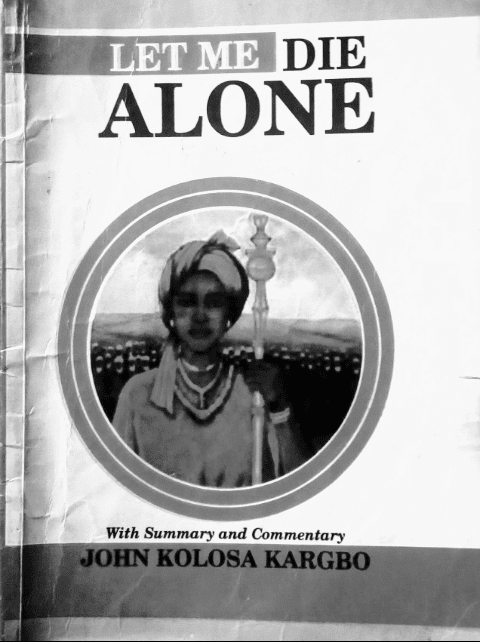As stated in one of our earlier posts, Alex Agyei-Agyiri’s Unexpected Joy at Dawn is set in two West African countries, Nigeria and Ghana. A part of the events in this book takes place in suburbs of Lagos in Nigeria and the other in Accra in Ghana. That is talking about the physical setting of the novel. In this essay, I intend to take you through the background events surrounding the novel in its entirety and the factors that necessitated the writing of the text itself.
As it has always been said, no literature text is independent of its society and era. Every work of fiction is one way or the other influenced by the different circumstances prevalent in the society. Unexpected Joy at Dawn is no exception. In fact, it can easily pass for a historical novel because it is grounded on two significant historical events.
The first event found its way in by November, 1969 when the then Ghanaian Prime Minister, Kofi Abrefa Busia, orchestrated the expulsion of 140,000 Nigerians from Ghana barely one month after his assumption of political office. Ghana was adrift and its economy in ruins. Nigeria on the other side was reaching the tail end of a disastrous civil war. This poor sense of judgement would affect the relationship between the two countries in more ways than one.
Alex Agyei-Agyiri builds his novel upon the foundation of this event. Mama Orojo with her parents was among the expelled Nigerians, leaving behind her kid brother, Nii Tackie. The event separated the two siblings. And hence it necessitated the conflict of the text which zeroes in on the re-union of the two.
The second significant historical event happened during Shehu Shagari’s administration. In 1983, Nigeria was facing a major financial crunch which brought about the introduction of austere measures by the Shagari government. In 1984, Shagari expelled over two million Ghanaians. This further strained the relationship between the two West African countries.
Within the context of Unexpected Joy at Dawn, Nigeria’s imminent expulsion of Ghanaians brings a big question mark on Nii Tackie’s identity. Until then, Nii Tackie considered himself a Ghanaian. He was born there; he answered a Ghanaian name; and it was there he received his education up to the university level. He had Ghanaian mannerisms. If not for his distinct tribal marks and a discrimination fuelled by Nigeria’s disgraceful decision, he would have been easily passed for a Ghanaian.
Thus, he seeks a re-union with his sister and a country he could call his. But that he would not find in Nigeria until fate brings the two siblings together.
Another noteworthy pointer to the background of the novel is in the revolutionary Ghanaian government. Although not explicitly stated in the text, Jerry John Rawlings was at the helm of affairs. He was the poster child for the revolution that swept throughout Ghana at the time.
His government dealt with perceived enemies of the state and corrupt politicians; it sent them to prison and killed some. It was cleansing the Ghanaian Aegean stable. It is as a result of this that Marshak had to flee to Nigeria where she subsists on prostitution and her mother to Ivory Coast to avoid what befell the patriarch of their family who himself was a prominent figure before the revolution.
The Rawlings administration also withdrew Cedi denomination(s) from circulation and questioned the means of income of some Ghanaians. It was this administration that fine-tuned Ghana into the better country it is today.
Conclusion
Unexpected Joy at Dawn has been likened to a historical novel because it is established on historical events: the first expulsion in 1969 which separated Nii Tackie from Mama Orojo and the second expulsion in 1984 which united the two siblings.
We have also brought to bear the Jerry Rawlings administration which was at the helm of affairs then in Ghana and whose brainchild it was the revolution that changed Ghana.
The physical setting of the novel is therefore Nigeria and Ghana. The time setting is in the 1980s and with the use of flashback technique, it goes way back to the late 1960s. The social setting puts up two post-colonial societies each with its fair share of economic crises, societal rottenness, religious bigotry and ethnical divide. These two countries, in different ways, are undergoing reformation set in place by their respective government policies.
Read Also:
— Themes in Alex Agyei-Agyiri’s UNEXPECTED JOY AT DAWN
— The Symbolic Use of Kantamanto Market and Korle Lagoon in UNEXPECTED JOY AT DAWN
— Characterisation in Alex Agyei–Agyiri’s UNEXPECTED JOY AT DAWN
— Alex Agyei-Agyiri’s UNEXPECTED JOY AT DAWN: A Few Things You Need To Know
 WHATSAPP: Click HERE to join the new Literature PADI WhatsApp group to receive latest updates on your phone and for further literary discussions!
WHATSAPP: Click HERE to join the new Literature PADI WhatsApp group to receive latest updates on your phone and for further literary discussions!








